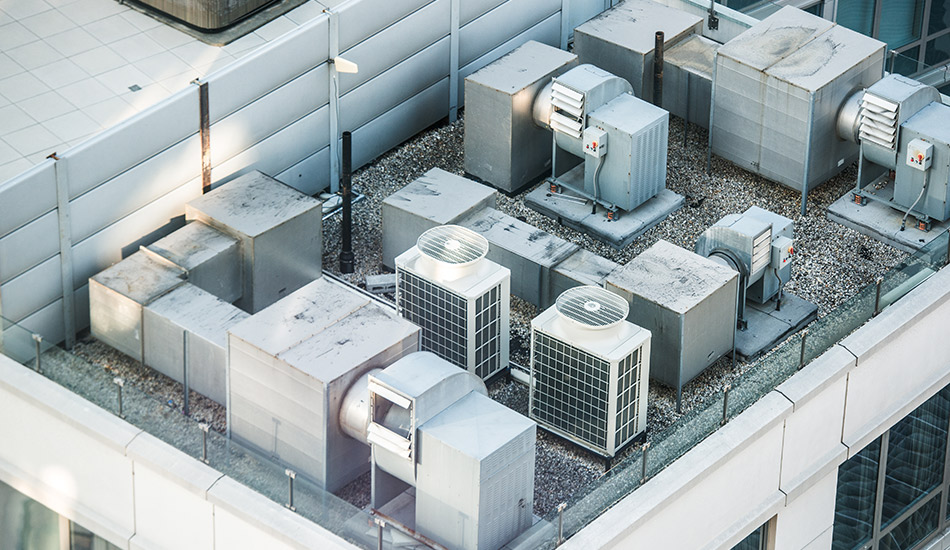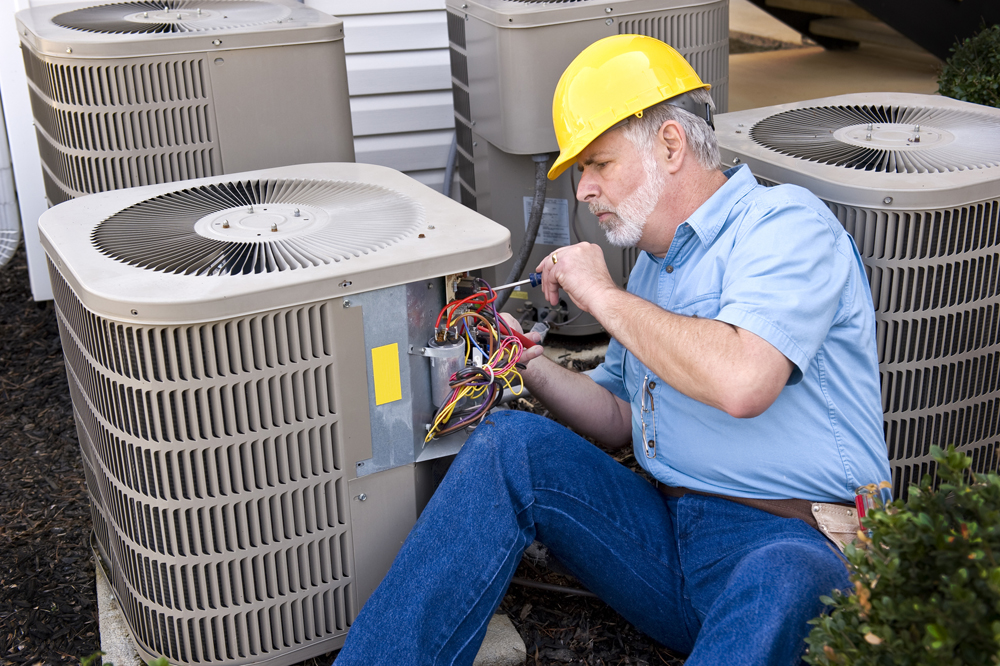Prevent Costly Repairs with Scheduled heat pump service
Prevent Costly Repairs with Scheduled heat pump service
Blog Article
Picking Between a Heatpump and Heater: Trick Considerations for Your HVAC Requirements
When examining home heating alternatives for heating and cooling requires, the choice in between a warm pump and a heater can be complicated. Each system provides distinctive advantages tailored to details climates and energy performance goals. Comprehending these differences is vital for making an informed selection. Trick elements such as installation prices and environmental impact additionally make complex the choice process. Which option really aligns with one's comfort and sustainability preferences? The adhering to sections will explore these factors to consider carefully.
Comprehending Warm Pumps: How They Function and Their Benefits
While lots of homeowners consider different heating choices, recognizing exactly how heatpump feature and their advantages can substantially influence their decision. Heatpump run by moving warmth rather than producing it. In the wintertime, they draw out warm from the outside air or ground and move it indoors, while in the summer season, they reverse this procedure, cooling down the home by expelling warmth outside. This twin capability makes them flexible for year-round climate control.One of the key advantages of heatpump is their power efficiency. They make use of substantially less electrical power compared to traditional heating unit, potentially leading to lower energy costs (heat pump replacement ooltewah tn). Furthermore, warm pumps have a smaller carbon footprint, making them an eco-friendly option. They likewise require less upkeep than standard systems, adding to long-lasting cost savings. In general, recognizing the mechanics and benefits of heatpump can help homeowners make notified decisions concerning their home heating and cooling demands
Checking Out Furnaces: Types, Operation, and Benefits
Heaters come in numerous types, consisting of gas, electrical, and oil models, each with unique operational mechanisms. Recognizing these distinctions is necessary, as they influence performance and heating performance. Additionally, furnaces provide many advantages, such as constant warm outcome and reliability in cooler climates.
Sorts of Heating systems
Heater can vary considerably in style and operation, with furnaces being a prominent selection among homeowners. There are several kinds of heaters, each making use of different gas sources and innovations. Gas heating systems are common, leveraging gas to create warm effectively. Electric furnaces, on the other hand, make use of electrical resistance to generate warmth, typically favored for their uncomplicated setup. Oil furnaces, while less usual, are effective in locations with minimal gas access (heat pump installation ooltewah tn). In addition, condensing furnaces take full advantage of energy effectiveness by catching and reusing exhaust gases. Each type runs with a system of heat exchangers and ductwork to distribute warm air throughout a home. Understanding the differences in between these heater types is vital for educated HVAC decisions
Benefits of Heating systems
For home owners seeking trusted warmth throughout cool months, the advantages of heaters are considerable. Heaters offer regular home heating, guaranteeing also temperature levels throughout the home. They are especially reliable in severe cold, commonly exceeding heatpump in icy problems. Various types, including gas, electrical, and oil furnaces, offer flexibility to meet diverse demands and preferences.Furnaces likewise often tend to have lower initial setup costs contrasted to heatpump, making them a more obtainable alternative for lots of. Their robust design contributes to a much longer life expectancy, with many systems lasting over 15 years with correct maintenance. Additionally, modern-day furnaces are usually furnished with innovative modern technology for enhanced effectiveness, which can bring about reduced power expenses. In general, heaters remain a reliable option for reliable home heating.

Energy Effectiveness: Contrasting Heat Pumps and Furnaces
When contrasting power performance in between heat pumps and heaters, the Seasonal Energy Performance Proportion (SEER) plays an essential function in establishing efficiency. In addition, an operational price analysis exposes the long-lasting financial ramifications of each system. Recognizing these factors can assist house owners in making informed decisions regarding their home heating solutions.
Seasonal Power Efficiency Ratio
Energy performance plays a vital role in the decision-making procedure in between heatpump and heating systems, especially when taking into consideration the Seasonal Power Efficiency Proportion (SEER) This metric measures the cooling performance of heatpump over an entire air conditioning period, giving a standard means to examine performance. Higher SEER rankings show higher power efficiency, translating to lower energy consumption and reduced utility expenses. In comparison, heaters are commonly analyzed utilizing the Yearly Fuel Usage Efficiency (AFUE) score, which shows home heating effectiveness. When contrasting these 2 systems, house owners should focus on SEER rankings for heatpump, as they straight influence overall power cost savings and environmental sustainability. A complete understanding of SEER can significantly influence the lasting fulfillment and cost-effectiveness of the chosen heating and cooling solution.
Functional Cost Analysis
Recognizing the operational prices connected with warm pumps and heating systems is crucial for home owners examining their alternatives. Heatpump typically provide higher power efficiency, converting electric power into warmth with very little waste. This causes lower month-to-month energy costs, specifically in moderate environments. On the other hand, typical heaters, especially gas models, may have reduced in advance prices however can sustain higher functional costs in time as a result of sustain rates and effectiveness ratings.Moreover, heatpump can function as both home heating and cooling down systems, potentially reducing the need for different cooling and heating devices. While initial financial investments for heatpump may be greater, their long-term savings in power efficiency can make them a more cost-effective choice for several houses. Mindful evaluation of neighborhood energy rates is important to identify the most effective alternative.
Setup Expenses: What to Expect for each and every Heating Unit
Installment expenses for heating systems can vary significantly between heatpump and heating systems, influencing home owners' choices. straight from the source Heatpump normally have greater ahead of time installment costs, normally varying from $3,500 to $8,000, depending on the device size and complexity of installation. This consists of the exterior device, interior handling system, and required ductwork adjustments. On the other hand, furnaces have a tendency to have lower initial prices, balancing in between $2,500 and $6,000, which can be appealing for budget-conscious house owners. Nevertheless, setup expenditures can raise if extensive ductwork is required.Moreover, the selection of gas type for furnaces-- all-natural gas, gas, or electric-- can additionally influence setup costs. While heatpump use energy performance, their preliminary investment may deter some purchasers. Eventually, assessing installation expenses alongside lasting cost savings and performance will aid house owners in making informed choices about their home heating systems.
Climate Factors To Consider: Which System Carries Out Much Better in Your Area
How do environment problems influence the efficiency of furnace? The performance of heatpump and furnaces can differ greatly depending on the regional environment. In moderate climates, warmth pumps stand out by successfully transferring warm from the outdoors air, making them an energy-saving option. Nevertheless, their efficiency reduces in exceptionally cold temperatures, where they might battle to extract adequate warmth. Conversely, furnaces, specifically gas versions, give dependable and consistent warmth despite outdoor conditions, making them more suitable in chillier regions.In locations that experience milder winters, heatpump can operate successfully year-round, giving both home heating and air conditioning. In comparison, areas with harsh winters typically profit from the toughness of heating systems. Inevitably, recognizing the neighborhood environment is crucial when deciding in between a warmth pump and a heater, as it straight impacts their operational efficiency and overall efficiency.
Upkeep Requirements: Long-Term Treatment for Warm Pumps vs. Furnaces
While both heatpump and heaters need normal maintenance to guarantee peak efficiency, their particular demands and treatment routines vary considerably. Heaters usually require less constant attention, with yearly assessments sufficing to examine for gas leaks, tidy filters, and evaluate total performance. Their less complex style often permits straightforward repairs.In comparison, heat pumps require semiannual maintenance as a result of their dual duty in cooling and heating. This consists of cleansing coils, checking cooling agent degrees, and guaranteeing that both the interior and outdoor units work at their ideal. Additionally, warmth pump upkeep typically entails more elaborate parts, making specialist servicing essential.Neglecting maintenance can cause lessened efficiency and boosted power prices for both systems. Ultimately, house owners need to consider these long-term care demands when selecting in between a heatpump and a furnace, as aggressive maintenance can extend the life expectancy and efficiency of either system significantly.
Ecological Influence: Picking a Sustainable Heating Choice
The ecological effect of furnace is a crucial assessment for Your Domain Name house owners looking for lasting choices. Warm pumps are normally extra energy-efficient than typical heaters, as they move warmth instead than create it, significantly decreasing carbon discharges. By utilizing renewable energy resources, such as geothermal or air-source heatpump, home owners can even more decrease their ecological footprint.On the other hand, gas heating systems release greenhouse gases and contribute to air pollution, though they often provide greater warm output. Developments heat pump replacement ooltewah tn in technology have actually led to the advancement of high-efficiency furnaces that decrease emissions.Ultimately, choosing a home heating system includes weighing effectiveness against ecological impact. Home owners are motivated to mirror on regional energy sources and incentives for sustainable systems, ensuring a selection that aligns with both individual comfort and environmental obligation. The choice affects not just immediate convenience but likewise lasting sustainability and environmental health and wellness.
Frequently Asked Concerns
The Length Of Time Do Warmth Pumps and Furnaces Usually Last?
The life-span of heat pumps commonly ranges from 15 to twenty years, while heaters can last between 15 to thirty years. Normal maintenance significantly influences their longevity and effectiveness in supplying home heating services.
Can I Utilize a Heatpump in Extremely Cold Climates?
Heatpump can run in very cool climates, but their efficiency lessens as temperatures drop. In such conditions, supplementary heating sources may be required to keep comfy interior temperature levels and assure peak performance.

What Is the Noise Degree of Warm Pumps Versus Furnaces?
The noise degrees of warmth pumps and furnaces differ significantly. Typically, warmth pumps run more silently than standard furnaces, making them preferable for those conscious sound, while heaters may generate louder operational sounds during home heating cycles.
Are Heat Pumps Suitable for Both Heating & Cooling?
Heatpump are undoubtedly suitable for both home heating and cooling (ductless mini splits). They function by moving warm, offering efficient temperature control year-round, making them a versatile choice for house owners seeking an all-in-one a/c option
What Size Heating System Do I Required for My Home?
Determining the appropriate dimension heating unit for a home requires reviewing aspects such as square video footage, insulation top quality, regional climate, and the home's format. Consulting a professional can ensure an exact analysis and optimal convenience. Warmth pumps usually supply higher energy performance, transforming electric energy right into heat with marginal waste. In modest environments, heat pumps excel by efficiently transferring warm from the outdoors air, making them an energy-saving choice. Alternatively, furnaces, particularly gas models, offer trusted and consistent warm regardless of outside conditions, making them more effective in cooler regions.In locations that experience milder winters months, warmth pumps can run effectively year-round, providing both home heating and cooling. Warmth pumps are generally a lot more energy-efficient than traditional heating systems, as they move warm rather than create it, greatly minimizing carbon discharges. By making use of renewable energy resources, such as air-source or geothermal warmth pumps, house owners can better lessen their ecological footprint.On the various other hand, all-natural gas heating systems give off greenhouse gases and contribute to air contamination, though they usually offer higher warmth result.
Report this page